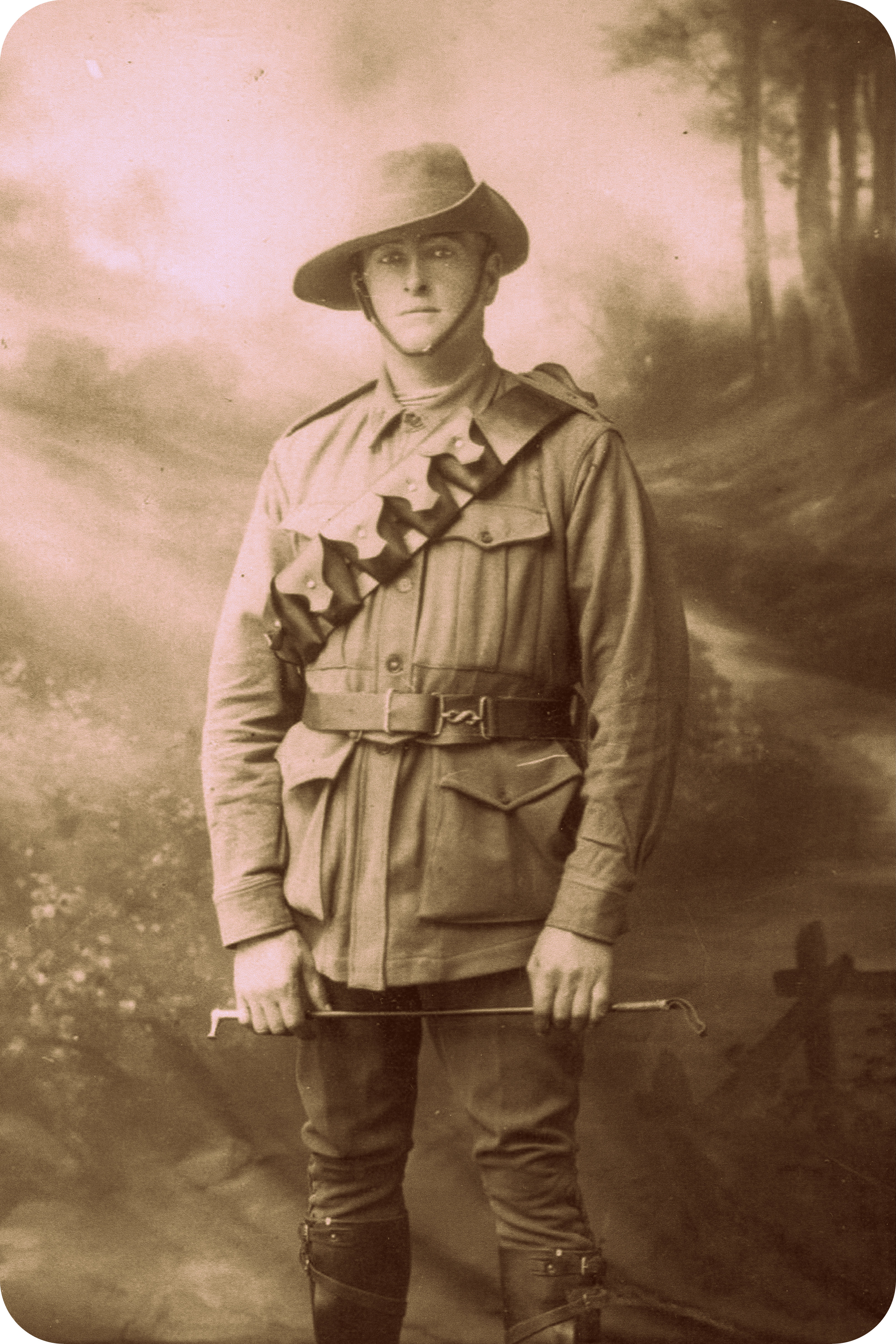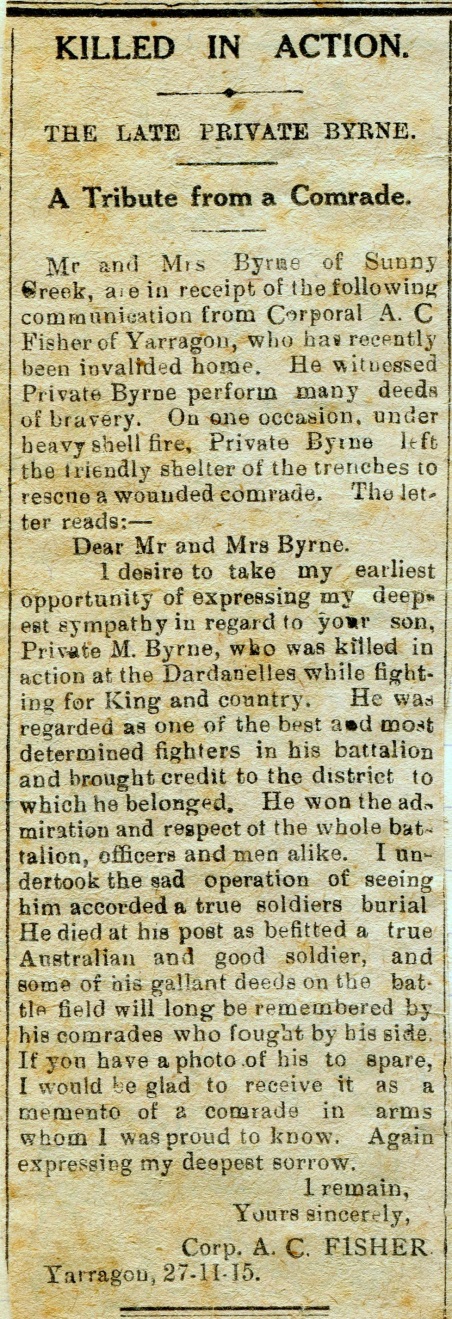WWI Stories – Michael Byrne
Sunny Creek
Richard Morrison shares the story of his great-uncle Michael ‘Mick’ Byrne.
Mick was born in Yarragon in 1891, the son of Anastasia and Pierce Byrne who were early settlers of Sunny Creek, near Trafalgar. Mick grew up with his younger siblings—Mary, Margaret, Veronica, Pierce, Agnes and Eileen—on the family farm, ‘Hawthorn Grove’. The farm is situated by a creek, alongside what is now the Princes Highway.
After attending Sunny Creek State School, Mick worked on the farm and developed a natural affinity for horses. Richard suggests this is why, when World War One broke out, Mick gravitated towards joining the Light Horse to ‘answer the call of King and country’.
Richard suggests this decision could also have been a way for Mick to escape a harsh life and a strict father. An Irishman, Pierce had no interest in losing his eldest son (and key worker) to the English army.
Mick enlisted at Trafalgar, three months after the outbreak of war, and embarked for the front on the HMAT Wiltshire in April 1915.
After a short stay Egypt, he reached the Dardenelles by May, another reinforcement to the now horseless 9th mounted regiment, dug desperately into the coastal cliffs of Gallipoli. Within just three days he had survived a bullet wound to the head—returning to duty the same day with what must have been just a close shave.
Like many of his comrades, Mick suffered from the gastric maladies of the trenches, spending a week in the field hospital on Mudros, a Greek island 50km from Gallipoli. He returned to duty and on 27 August and was involved in the major assault of a Turk position called Hill 60.
Half of the 9th Light Horse became casualties of this costly affair. Mick survived the appalling carnage of the first day of battle, only to be shot in the head the next day whilst moving about in his trench. He was not so lucky the second time: he died of wounds two days later on 30 August and was buried the same day.
In a moving letter to Pierce and Anastasia, an old friend of Mick’s from Yarragon, Corporal Albert C. Fisher, later testified to Mick’s courage under fire (see clipping for The Trafalgar & Yarragon Times). Despite his father’s deep misgivings, Anastasia applied for and received Mick’s posthumous war medals, which were: the 1914-15 Star, the British War Medal and the Victory Medal.
Although Mick’s life was cut short, he lives on in the memory of his family who remember his self-sacrifice.







